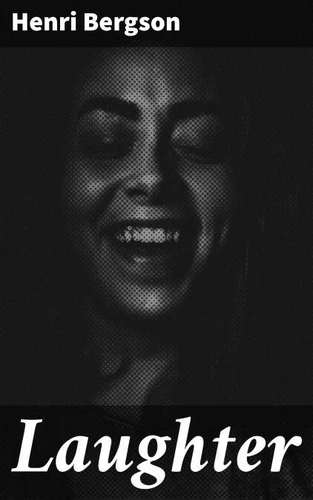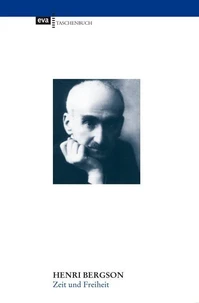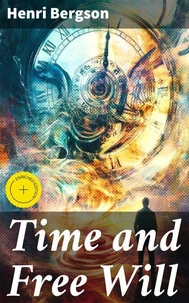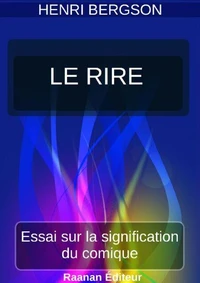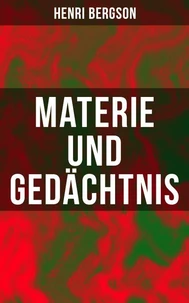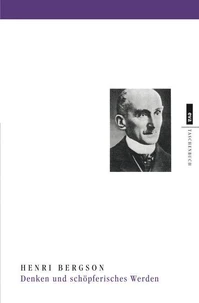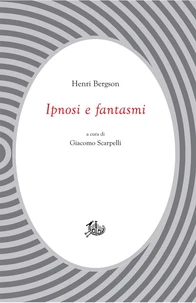Laughter. An Essay on the Meaning of the Comic
Par : , ,Formats :
Disponible dans votre compte client Decitre ou Furet du Nord dès validation de votre commande. Le format ePub est :
- Compatible avec une lecture sur My Vivlio (smartphone, tablette, ordinateur)
- Compatible avec une lecture sur liseuses Vivlio
- Pour les liseuses autres que Vivlio, vous devez utiliser le logiciel Adobe Digital Edition. Non compatible avec la lecture sur les liseuses Kindle, Remarkable et Sony
 , qui est-ce ?
, qui est-ce ?Notre partenaire de plateforme de lecture numérique où vous retrouverez l'ensemble de vos ebooks gratuitement
Pour en savoir plus sur nos ebooks, consultez notre aide en ligne ici
- Nombre de pages176
- FormatePub
- ISBN4057664115553
- EAN4057664115553
- Date de parution19/11/2019
- Protection num.Digital Watermarking
- Taille407 Ko
- Infos supplémentairesepub
- ÉditeurGOOD PRESS
Résumé
In "Laughter: An Essay on the Meaning of the Comic, " Henri Bergson delves into the intricate nature of humor and its role within society. Written in the early 20th century, this insightful essay employs a philosophical lens, merging analytical rigor with rich literary style. Bergson observes that laughter arises from the mechanical enervation of life, contrasting spontaneity with rigidity, and situating comedy within the broader context of human experience.
The text invites readers to reflect on the essence of humor as a social phenomenon, arguing that laughter serves as a corrective mechanism, fostering social cohesion by revealing human folly. Henri Bergson, a French philosopher and Nobel laureate, was deeply engaged with concepts of time, consciousness, and creativity. His exploration of non-linear concepts and vitalism in his earlier works undoubtedly influenced his approach to laughter as a symptom of societal dynamics.
By marrying philosophy with practical observation, Bergson seeks to unravel the complexities of human interaction, showcasing an inherent affinity for studying life's nuances, particularly the absurdity of existence. "Laughter" is an essential read for anyone intrigued by the philosophical underpinnings of humor and its societal implications. Bergson's engaging prose encourages a profound appreciation of the comic while challenging readers to consider their own perceptions of laughter.
This work remains a crucial text for scholars, comedians, and social scientists alike, offering timeless insights into the interplay between humor and humanity.
The text invites readers to reflect on the essence of humor as a social phenomenon, arguing that laughter serves as a corrective mechanism, fostering social cohesion by revealing human folly. Henri Bergson, a French philosopher and Nobel laureate, was deeply engaged with concepts of time, consciousness, and creativity. His exploration of non-linear concepts and vitalism in his earlier works undoubtedly influenced his approach to laughter as a symptom of societal dynamics.
By marrying philosophy with practical observation, Bergson seeks to unravel the complexities of human interaction, showcasing an inherent affinity for studying life's nuances, particularly the absurdity of existence. "Laughter" is an essential read for anyone intrigued by the philosophical underpinnings of humor and its societal implications. Bergson's engaging prose encourages a profound appreciation of the comic while challenging readers to consider their own perceptions of laughter.
This work remains a crucial text for scholars, comedians, and social scientists alike, offering timeless insights into the interplay between humor and humanity.
In "Laughter: An Essay on the Meaning of the Comic, " Henri Bergson delves into the intricate nature of humor and its role within society. Written in the early 20th century, this insightful essay employs a philosophical lens, merging analytical rigor with rich literary style. Bergson observes that laughter arises from the mechanical enervation of life, contrasting spontaneity with rigidity, and situating comedy within the broader context of human experience.
The text invites readers to reflect on the essence of humor as a social phenomenon, arguing that laughter serves as a corrective mechanism, fostering social cohesion by revealing human folly. Henri Bergson, a French philosopher and Nobel laureate, was deeply engaged with concepts of time, consciousness, and creativity. His exploration of non-linear concepts and vitalism in his earlier works undoubtedly influenced his approach to laughter as a symptom of societal dynamics.
By marrying philosophy with practical observation, Bergson seeks to unravel the complexities of human interaction, showcasing an inherent affinity for studying life's nuances, particularly the absurdity of existence. "Laughter" is an essential read for anyone intrigued by the philosophical underpinnings of humor and its societal implications. Bergson's engaging prose encourages a profound appreciation of the comic while challenging readers to consider their own perceptions of laughter.
This work remains a crucial text for scholars, comedians, and social scientists alike, offering timeless insights into the interplay between humor and humanity.
The text invites readers to reflect on the essence of humor as a social phenomenon, arguing that laughter serves as a corrective mechanism, fostering social cohesion by revealing human folly. Henri Bergson, a French philosopher and Nobel laureate, was deeply engaged with concepts of time, consciousness, and creativity. His exploration of non-linear concepts and vitalism in his earlier works undoubtedly influenced his approach to laughter as a symptom of societal dynamics.
By marrying philosophy with practical observation, Bergson seeks to unravel the complexities of human interaction, showcasing an inherent affinity for studying life's nuances, particularly the absurdity of existence. "Laughter" is an essential read for anyone intrigued by the philosophical underpinnings of humor and its societal implications. Bergson's engaging prose encourages a profound appreciation of the comic while challenging readers to consider their own perceptions of laughter.
This work remains a crucial text for scholars, comedians, and social scientists alike, offering timeless insights into the interplay between humor and humanity.

